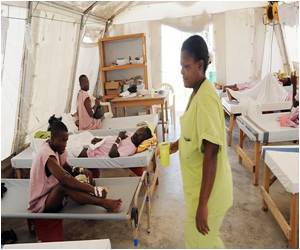
"From our studies in mice, we found that signals derived from these beneficial microbes are essential for optimal immune responses to experimental viral infections," says Artis. "In one way we could consider these microbes as our 'brothers in arms' in the fight against infectious diseases." Artis is also an associate professor of Pathobiology in the Penn School of Veterinary Medicine.
Signals from commensal bacteria influence immune-cell development and susceptibility to infectious or inflammatory diseases. Commensal microbial communities colonize barrier surfaces of the skin, vaginal, upper respiratory, and gastrointestinal tracts of mammals and consist of bacteria, fungi, protozoa, and viruses. The largest and most diverse microbial communities live in the intestine.
Previous studies in patients have associated alterations in bacterial communities with susceptibility to diabetes, obesity, cancer, inflammatory bowel disease, allergy, and other disorders. Despite knowing all of this, exactly how commensal bacteria regulate immunity after being exposed to pathogens is not well understood.
To get a better picture of how these live-in bacteria are beneficial, the Artis lab used several lines of investigation. First, they demonstrated that mice -- treated with antibiotics to reduce numbers of commensal bacteria -- exhibit an impaired antiviral immune response and a substantially delayed clearance of a systemic virus or influenza virus that infects the airways. What's more, the treated mice had severely damaged airways and increased rate of death after the experimental influenza virus infection, demonstrating that alterations in commensal bacterial communities can have a negative impact on immunity against viruses.
Next, they profiled the genes that were expressed in immune cells called macrophages isolated from the antibiotic-treated mice. These data revealed a decreased expression of genes associated with antiviral immunity. In addition, macrophages from antibiotic-treated mice showed defective responses to interferons, proteins made and released in response to viruses, bacteria, parasites, or tumor cells. Under normal circumstances, interferons facilitate communication between cells to trigger the immune cells that attack pathogens or tumors. The antibiotic-treated mice also had an impaired capacity to limit viral replication. However, when mice were treated with a compound that restored interferon responsiveness, protective antiviral immunity was re-established.
Advertisement
Taken together, these lines of evidence indicate that signals from commensal bacteria beneficially stimulate immune cells in a way that is optimal for antiviral immunity. "Although more work needs to be done, these findings could illuminate new ways to promote better immunity to potentially life-threatening viral infections," adds Artis.
Advertisement
Source-Eurekalert














